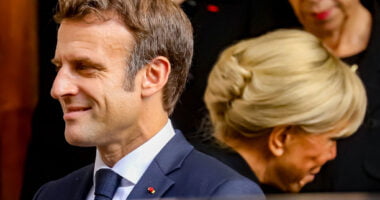Here are healthy foods to eat for the best orgasm experience ever! There are several foods that can help improve the orgasm experience. Oranges, olive oil, eggs, peppers, garlic, honey, oysters, dark chocolate, salmon, and avocados are some of the healthy foods that can help improve sexual health and enhance the orgasm experience. Oranges are rich in Vitamin C, which is necessary for keeping sexual organs healthy. Olive oil is a good fat that signals the body to start producing testosterone, which is useful for women who have difficulty reaching orgasm. Eggs are rich in vitamins B5 and B6, which help maintain hormone levels and provide long-lasting energy. Peppers increase metabolism and stimulate endorphins, while garlic helps improve blood flow. Honey is a natural sweetener that can be used to sweeten ginseng tea, which is known to improve erections and increase sperm count. Oysters contain natural compounds that can raise testosterone levels. Dark chocolate contains methylxanthines, which can boost libido. Salmon is rich in omega-3 fatty acids, which can increase dopamine levels. Avocados are rich in unsaturated fat and low in saturated fat, making them ideal for improving blood flow to the right spots.
What are some other ways to improve bed performance?
While there’s no magic formula to guarantee “improved” bed performance, there are several holistic approaches you can take to enhance your overall intimacy experience and well-being:
Physical Health Approach:
- Healthy diet: Focus on whole foods, fruits, vegetables, lean protein, and healthy fats. This provides the nutrients your body needs for optimal blood flow, hormonal balance, and energy.
- Exercise: Regular physical activity improves cardiovascular health, circulation, and stamina, all beneficial for sexual function.
- Sleep hygiene: Adequate sleep is crucial for overall health, including sexual function. Aim for 7-8 hours of quality sleep per night.
- Pelvic floor exercises: Kegels can strengthen the muscles around your genitals, improving control and sensation during intercourse.
- Manage stress: Chronic stress can negatively impact your libido and sexual function. Practice relaxation techniques like meditation, yoga, or deep breathing.
Avoid alcohol and drugs: These substances can impair sexual function and reduce pleasure.
Mental and Emotional Health:
- Open communication: Talk to your partner about your desires, needs, and concerns. Open and honest communication is essential for a fulfilling sexual experience.
- Emotional intimacy: Build a strong emotional connection with your partner. This creates trust, safety, and a foundation for deeper intimacy.
- Positive body image: Accepting and appreciating your body is crucial for sexual confidence and enjoyment.
- Explore different techniques: Experiment with different positions, touches, and activities to find what feels good for both you and your partner.
- Focus on pleasure: Shift the focus from performance to enjoying the experience and being present in the moment.
- Seek professional help: If you’re facing sexual difficulties or concerns, don’t hesitate to seek help from a therapist or healthcare professional. They can provide guidance and support for addressing underlying issues.
Additional Tips:
- Create a sensual atmosphere: Dim the lights, light candles, put on some music, or draw a bath to set the mood.
- Use lubricants: Lubricants can reduce friction and make intimacy more pleasurable, especially if dryness is an issue.
- Take your time: Don’t rush into it. Enjoy the foreplay and build anticipation.
Focus on your partner: Pay attention to your partner’s needs and desires. Pleasuring your partner is a great way to enhance your own pleasure. - Be playful and have fun: Don’t take things too seriously. Relax, have fun, and enjoy the experience!
ALSO READ: 10 foods that boost a woman’s energy and stamina in bed – Eat right for that experience









